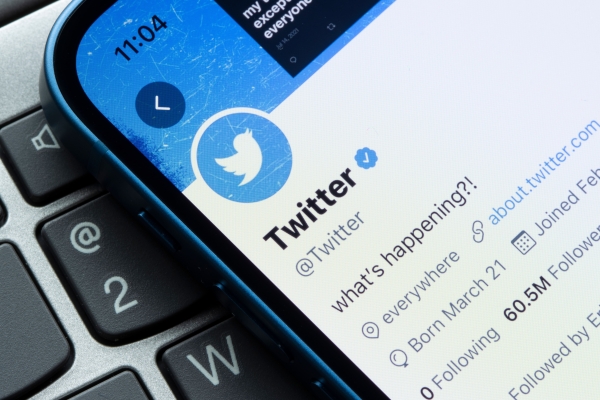Why Twitter’s decision to charge for data access could risk EU fines

Twitter’s decision to revoke access to their free API will severely disrupt public interest projects worldwide. It’s an irresponsible decision that would disadvantage non-profits, journalists, and academia and could also be at odds with EU regulations.
Two weeks ago, out of the blue, Twitter’s development team announced in a thread that the platform would no longer provide free access to its developer application programming interface (API) (both v2 and v1.1) starting February 9. Instead, a paid basic tier replacing all previous access levels will be made available for 100 $ per month that offers low-level access.
What this entails is yet unclear until this day. Since its announcement, the launch of the new API platform has been delayed for vague reasons. In addition, Twitter promised a new type of free access for automated accounts, with the number of tweets being limited to 1,500 per month.
Twitter’s relatively wide-ranging access to data has been used to research and analyse some of the most pressing issues impacting our online discourse, including inauthentic behaviour, hate speech and disinformation.
This hasty decision of putting data access behind a de facto paywall will likely disrupt critical research projects from journalists, academia, and civil society actors around the globe. Without the possibility to download and analyse raw Twitter data for free, the change in API access might bring an end to student projects and under-resourced independent research using Twitter data as we know it.
Will Twitter’s change in API access reduce inauthentic behaviour?
Why Twitter decided to move forward with this decision is as vague as its external communication since Elon Musk took over. Musk said his goal in charging for API access is to reduce the number of fake and bot accounts, suggesting a subscription fee would fix the issue.
A paywall for its free API will most likely not affect those coordinating bot farms to disseminate disinformation or squeeze profit from it, though. They will still have the financial means to buy into access. But what about civil society organisations, researchers, independent developers, and journalists?
Twitter’s API access can be a resource for public-interest research to map trends and discursive patterns. The flip side: researchers have always been dependent on the tech platforms’ willingness to provide access to data. Meta, Alphabet, and Twitter, with their different access levels, are the de facto gatekeepers of the information we receive.
The company’s new barriers to data access will not only accelerate this dependency and put the platforms’ promise of more transparency at risk; in Europe, it will effectively put the Digital Services Act in Europe to the test.
Could Twitter risk paying EU fines?s
Twitter’s decision to disrupt the support of all access levels could result in significant fines under the DSA. The DSA creates a procedure for the European Commission and the respective national authorities (‘Digital Service Coordinators’) to gain confidential access to platform data.
Access is limited to so-called “vetted researchers” (affiliated with a research organisation) and “researchers” who contribute to the detection, identification and understanding of “systemic risks”.
What is important here is that for researchers to be granted access, they do not need to be part of the academic community. An independent research institute or civil society organisation can both apply for access if their research in the public interest focuses on risks to democracy stemming from hate speech, for instance.
General access to the platform for eligible researchers is thus a commitment the company is to adhere to in compliance with European law. However, it is unclear whether the DSA requires explicitly an API or interface access free of cost. If so, Twitter’s decision is at odds with EU law.
The crucial element is that the DSA links voluntary codes to mitigating risks, so failure to commit to the updated Code of Practice on Disinformation – now linked to the DSA – can be seen as breaching the rules. The code itself, which Twitter has signed, calls for improving data access for researchers. Forcing researchers to pay for API access in the public interest contradicts Twitter’s commitment made last year when it signed the Code of Practice.
Once the Commission designates very large online platforms (VLOPs), which according to the DSA, will be subject to more scrutiny, this breach of the code can serve as evidence that Twitter did not contribute enough to mitigation.
Amidst the universal outcry, Musk said on 5 February he would be willing to provide a “light, write-only API” for developers investing in benevolent bots, exempting people who create “good content” from API access limitations and charges. It’s unclear if the free limited write access is how he plans to provide API services to such developers.
Additionally, what exactly falls under “good content” has not yet been defined. Before Musk’s takeover, anyone wanting access to Twitter’s API could get it for free. Now, it depends on whether he likes the content he sees. So much for “the bird is free”.



